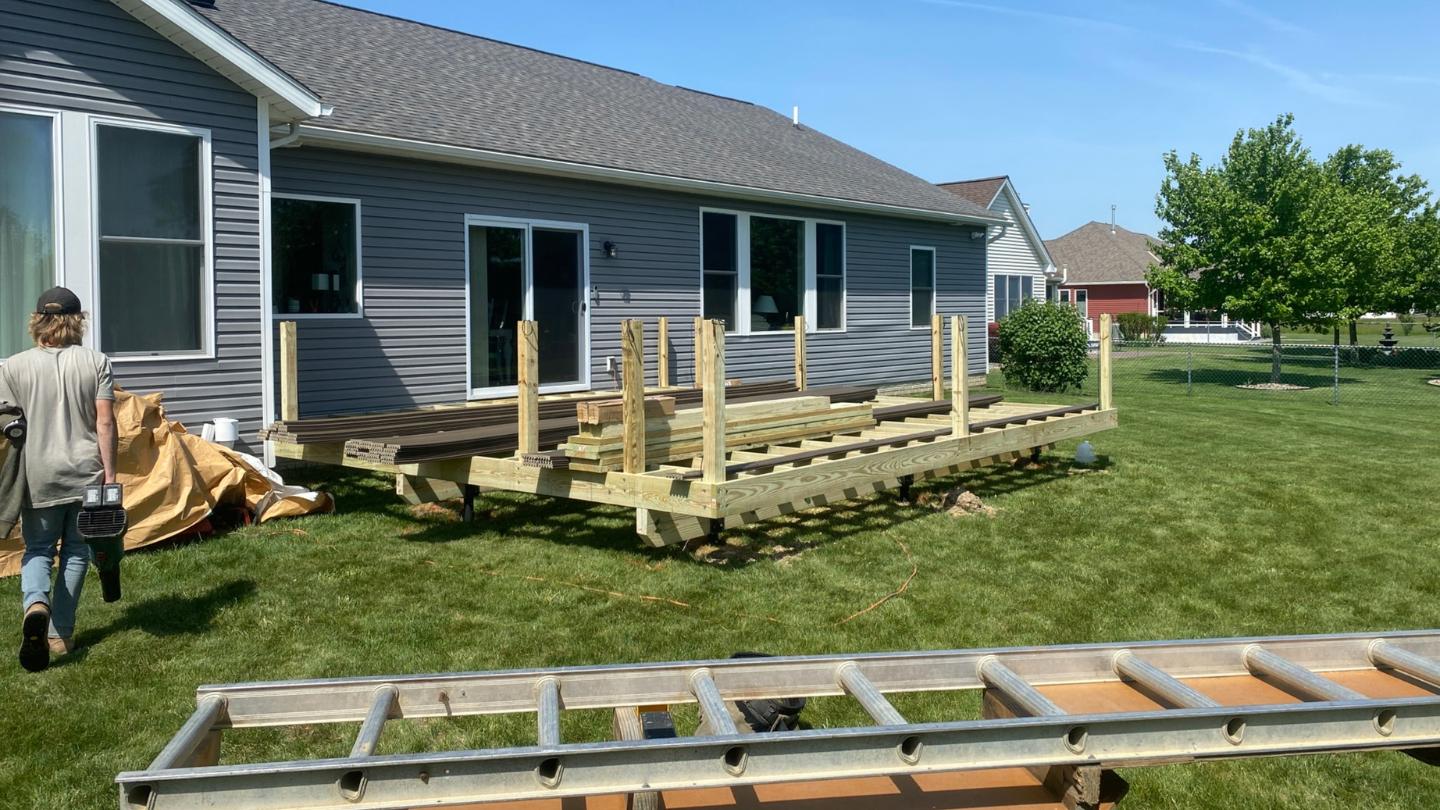Adding a deck is one of the best ways to extend your living space and boost your home’s appeal. Whether it’s a spot for family barbecues, quiet mornings, or hosting friends, a well-built deck can completely transform your outdoor experience. But finding the right person to build it — that’s where things get tricky.
Choosing a deck builder isn’t just about price or availability. You’re hiring someone to create a structure that needs to be safe, durable, and visually aligned with your home. The right choice will make the process smooth and rewarding, while the wrong one can turn into months of frustration and costly repairs.
Here’s what you should consider before signing a contract or cutting that first check.
1. Start With Experience and Reputation
Deck building might look straightforward, but it involves structural engineering, material knowledge, and design skill. A contractor with years of experience will know how to navigate everything from uneven ground to tricky permits.
When you begin your search, focus on professionals who specialize in decks rather than general handymen. Review their past work, ask for photos, and check customer testimonials. If possible, drive by one of their completed projects to see the quality firsthand.
A builder with a consistent record of good craftsmanship and satisfied clients is far more reliable than someone offering a deep discount but little proof of experience.
2. Verify Licenses, Insurance, and Permits
This is one of the biggest points people overlook — and one of the most important. Always make sure your builder has the proper state or local licensing required for deck construction. A legitimate builder should have no problem showing you their credentials.
Next, ask for proof of insurance. There are two types you want to see:
- General liability insurance, which protects your property if something is damaged.
- Worker’s compensation, which covers injuries that happen on-site.
Without insurance, you could be held liable for accidents or damages. It’s also wise to confirm that the builder is familiar with your city’s permitting process. Permits protect you by ensuring the deck meets local safety codes and load requirements.
3. Compare Materials and Options
Not all decks are created equal, and the material you choose will define its longevity and maintenance needs. A good builder should walk you through the pros and cons of each material option, including:
- Pressure-treated wood – affordable but needs regular sealing.
- Cedar or redwood – naturally resistant to rot but more expensive.
- Composite decking – durable, low-maintenance, and eco-friendly but pricier upfront.
If a contractor only pushes one type of material without explaining alternatives, that’s a red flag. An honest professional focuses on your goals — not just what’s convenient for them.
A reputable team like Deck Builders San Antonio will help you find the right balance between aesthetics, cost, and durability for your project.
4. Understand the Full Scope of the Estimate
A detailed estimate should include labor, materials, cleanup, and any extra features such as railings or built-in seating. Never settle for vague pricing. A clear quote keeps both sides accountable and reduces the risk of surprise costs later.
When reviewing bids:
- Ask for a line-by-line breakdown.
- Clarify whether design, permits, or site prep are included.
- Make sure you understand payment terms — how much is due upfront and when the balance is owed.
Avoid builders who demand full payment before work begins. Industry standard is usually a deposit with milestone payments as progress is made.
5. Check Communication and Professionalism
How a builder communicates before the project begins often predicts how things will go once work starts. Are they responsive, patient, and clear? Do they answer questions directly?
Good communication prevents misunderstandings and builds trust. If a contractor dodges questions, takes days to respond, or seems irritated by details, those small red flags can become major frustrations during construction.
A deck project can take weeks, so you want someone who’s easy to work with — not just skilled with tools.
6. Look at Their Design Capabilities
A deck should complement your home’s architecture, not look like an afterthought. Some builders focus strictly on construction, while others offer full design services.
If aesthetics matter to you, find a builder who can help visualize the layout, recommend features like lighting or pergolas, and even create a 3D rendering before construction. This ensures you’ll get both function and beauty in the final product.
7. Ask About Timelines and Scheduling
Delays can happen, but your builder should still give you a realistic timeline. Ask about:
- Estimated start and completion dates.
- What might cause delays (weather, material shortages, permit approvals).
- How they’ll communicate if the schedule changes.
A professional will set reasonable expectations and keep you updated throughout. The key here is transparency — you should never have to chase updates or wonder what’s happening.
8. Inspect Warranties and Aftercare Policies
A reputable contractor stands behind their work. Ask if they offer warranties for both materials and labor. Manufacturers often cover defects in decking products, but the builder should also provide a workmanship warranty.
This gives you peace of mind that if something isn’t built correctly, it’ll be fixed without additional cost. Also, find out whether they offer ongoing maintenance or inspections — especially for composite decks or custom builds.
9. Consider Reviews and Word of Mouth
Online reviews can reveal a lot about a builder’s consistency, but they should never be your only reference point. If you know someone who recently built a deck, ask about their experience. Personal referrals carry weight because they come from firsthand trust.
When reading reviews, look for patterns rather than one-off complaints. Consistent mentions of reliability, cleanliness, and professionalism are good indicators of quality. If every negative review points to the same issue — poor communication, delays, or cost surprises — that’s worth noting.
10. Prioritize Safety and Code Compliance
Deck failures, while rare, can be serious. That’s why code compliance matters so much. Make sure your builder uses proper footings, flashing, and fasteners that meet structural standards.
To get a better understanding of what goes into safe deck construction, you can read through the consumer safety guidelines provided by the U.S. Consumer Product Safety Commission. It’s a great way to understand the safety measures your contractor should already be following.
11. Get Everything in Writing
Once you’ve chosen a builder, insist on a written contract. It should cover the full scope of work, payment structure, start and end dates, and warranty details. Never rely on verbal agreements — they’re nearly impossible to enforce if something goes wrong.
A written contract protects both you and the contractor and ensures everyone understands their responsibilities from day one.
12. Final Thought: Quality Over Cost
It’s tempting to go with the cheapest option, but decks are long-term investments. Saving a few hundred dollars now could cost you thousands in repairs later. Prioritize skill, reliability, and integrity over price alone.
The best deck builders combine craftsmanship with communication, making your project as enjoyable as the space you’re about to create. When you take your time to vet the right professional, you’ll end up with a deck that lasts — and memories that do, too.





























